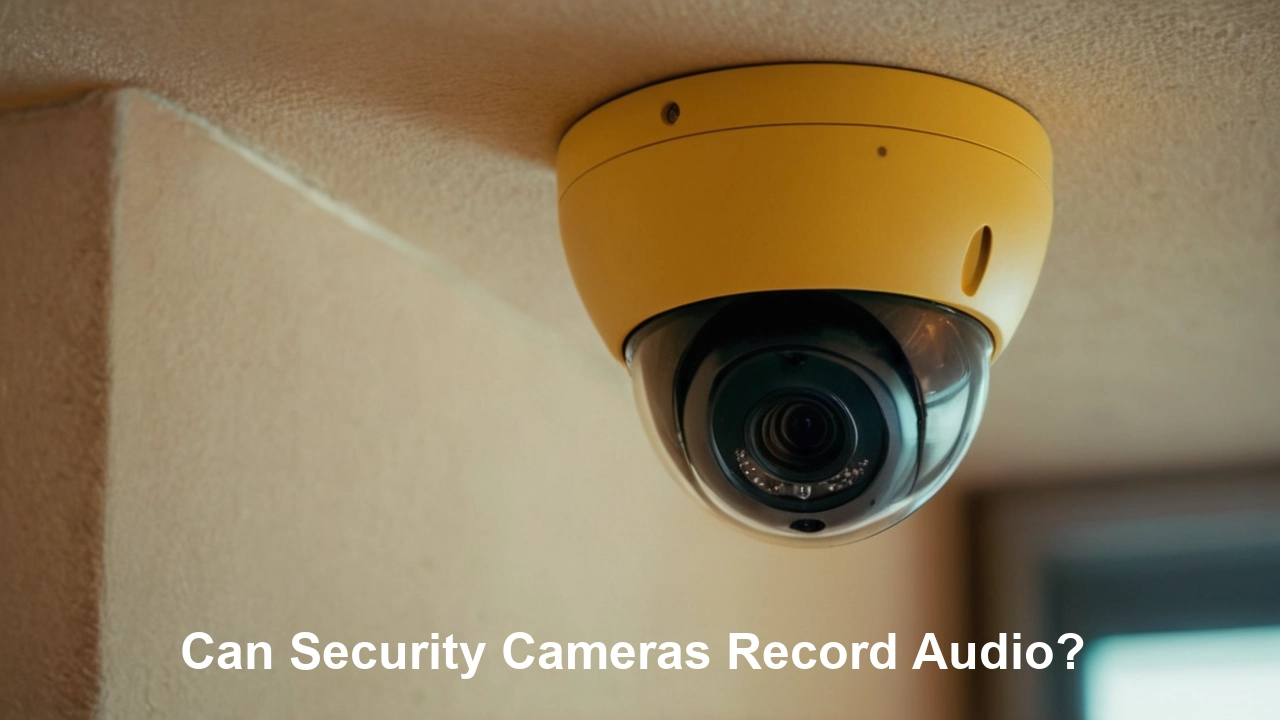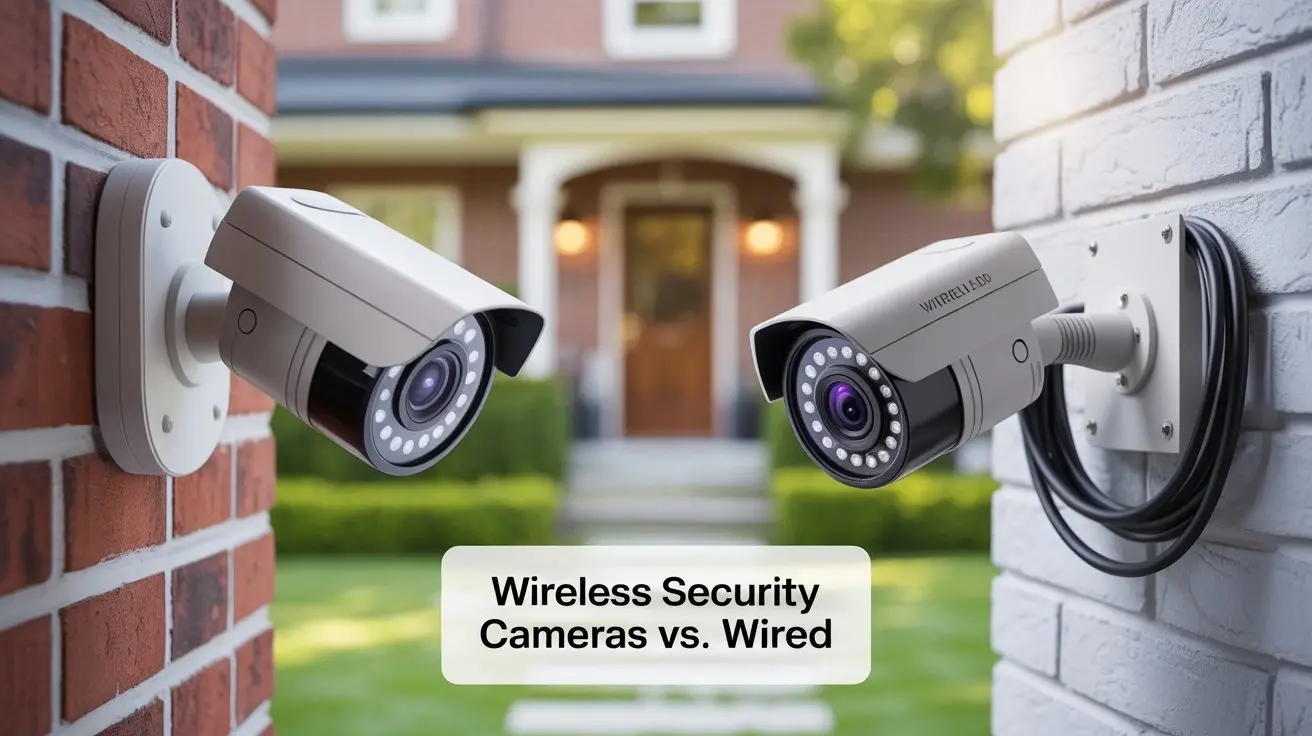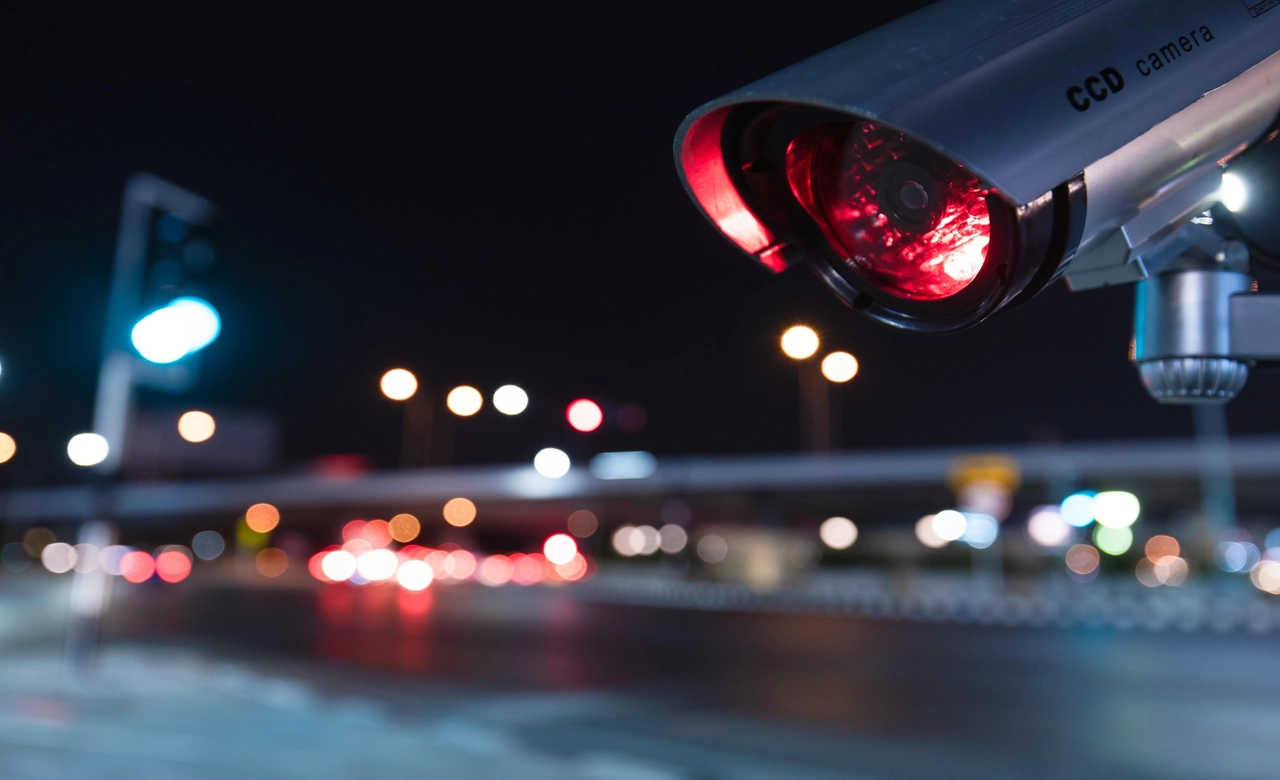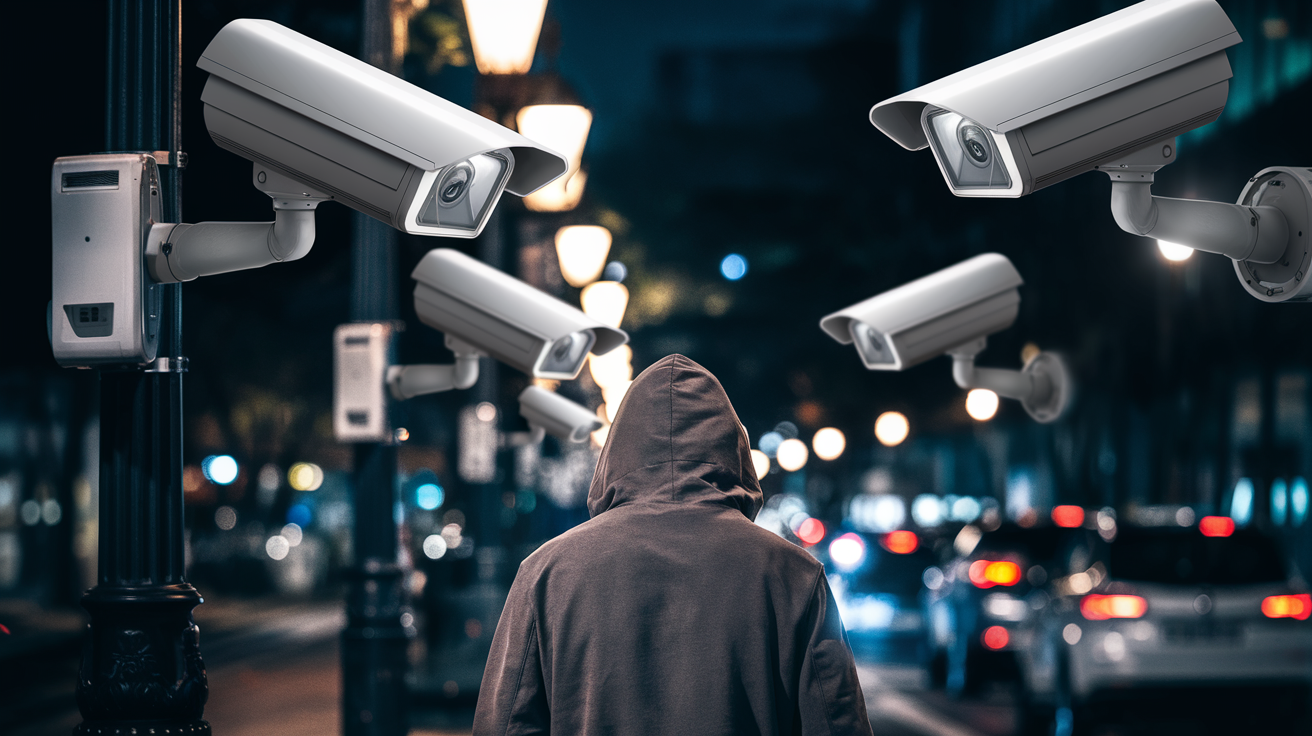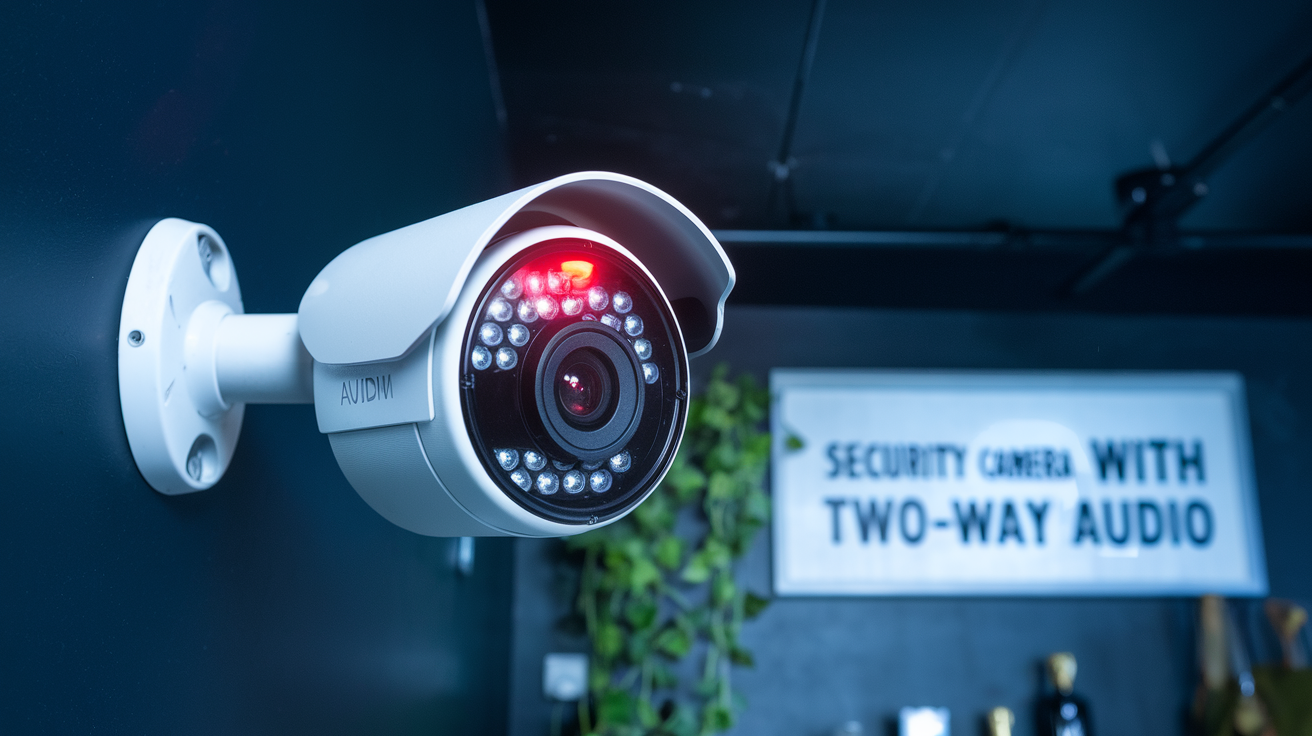Is it possible for Security Cameras to record audio?
CCTV systems have become part and parcel of our lives today. Private companies and homeowners use security cameras to prevent crimes and to monitor videos in the event of a crime. This then begs the question – can security cameras also capture sound?
The short answer is that, yes, quite a few security cameras that are available for purchase do offer audio recording. But there are also numerous models that record only videos. Generally, the ability of a security camera to record audio depends on the model and the features that come with it.
Now, let’s discuss and analyze security camera audio recording and the features of various types of cameras.
Can IP and WiFi Security Cameras Record Audio?
IP cameras and WiFi security cameras have become among the most sought after solutions for home and business security camera systems. IP and WiFi cameras are devices that integrate into your home or office wireless network to send videos. Most models also have cloud connectivity for remote access via an Android or iOS device.
Another advantage of wireless IP and WiFi cameras is most of them support full HD video and two-way audio intercom. Not only can these cameras capture what is going on in front of them in audio format, but they also incorporate a microphone and a speaker to have a conversation. It enables you to eavesdrop and converse through the camera from your smartphone regardless of your location.
Contemporary IP and WiFi cameras incorporate features such as night vision, motion detection, and smart analytics to identify people and send out notifications each time the cameras hear something. The intelligent analysis can distinguish between noise events and usual background noise, for instance.
In summary, when choosing an IP or WiFi security camera, ensure it has two-way audio and the ability to detect and respond to specific sounds for full audio functions.
Do Analog Security Cameras Record Sound?
Analog security cameras send the picture signal back to a DVR for recording through a coax cable instead of using IP infrastructure. However, most traditional analog cameras have a drawback where they do not inherent audio recording options.
Analog cameras are connected with coax cabling instead of IP networking; therefore, they cannot send any audio back to the DVR. The only exception is wireless analog cameras that are fitted with microphones – these can send audio through the wireless signal to the receiver.
In case having audio recording is important, then the analog cameras cannot be recommended. Unfortunately what you really have is a camera input and no microphone pickup or audio recording solution. Audio features are better implemented in IP cameras.
Are Dome Cameras Capable of Capturing Sound?:
Dome CCTV cameras are among the most widely used security camera designs that can be installed both inside and outside. They are dome shaped and this makes it hard for the people around to figure out which direction the camera is facing. However, can these covert dome cameras also record sound?
It should be noted, however, that many of the dome cameras available on the market do include microphones for audio recording. Nonetheless, dome cameras that do not have IP compatibility may not be able to provide audio capability. Analog coax-based dome cameras, for instance, cannot send audio signals back to the recording equipment.
There are also vandal proof dome cameras with the camera housing encased in a tough exterior to prevent tampering with the camera. These are ideal for risky areas of the public domain but the strong outer casing can hinder audio capture. Ensure that any vandal-proof dome camera you buy has an audio feature clearly stated on the product description.
In summary, while some dome cameras do come with audio capabilities, the networking features and housing type may affect this feature. Always verify the camera specifications to ensure that it supports audio as it can be disappointing to discover it lacks the feature later.
Are PTZ Camera Capable Of Capturing Sound?
Pan-tilt-zoom (PTZ) cameras are one of the subcategories of security cameras which is quite flexible. PTZ cameras can pan for a wide area and tilt for closer observation of objects like faces or car plates. Most PTZ camera models also incorporate a feature that comes with in-built microphones and speakers for two-way transmission.
When choosing a PTZ camera, ensure it comes with the PTZ features you require, and two-way audio. This way, you are able to use the camera to pan, tilt or zoom in to observe a certain area in detail and you can even listen in and speak through the camera speaker if necessary.
As PTZ cameras tend to cover large open areas, they require high-quality microphones that can capture distant audio without noise. The same applies to the speaker which should be able to provide sound output across distances that is loud and clear at the same time.
Essential audio parameters such as the microphone input, signal-to-noise ratio and speakers output should be provided where PTZ security cameras record audio. When deciding on a camera for outdoor use, also check on the weather resistant feature.
Are Doorbell Cameras Capable of Recording Sounds?
Video door bells have also become common in the recent past. Homeowners can confirm their guest’s identity and even engage in a conversation with the guests without having to open the door. It, therefore, comes as no shock that audio recording is an essential component that enables doorbell cameras.
Many of the newest and most established brands, including Ring and Nest to smaller unknown ones, have the two-way talk system integrated into their video doorbell cameras. These devices are able to record the sounds coming from your doorstep and at the same time they enable you to speak to someone through your phones microphone and speaker as you would through an intercom.
Some of the smart doorbells with motion sensors also alert you when they hear a voice or a knock on the door. This enables one to observe and listen to the visitors without necessarily having to wait for the doorbell button to be pressed. Audio sensing helps make sure that no delivery or visitor goes unnoticed.
While selecting a WiFi video doorbell, ensure that the two-way audio is crispy and free from noise to enhance its performance. Also ensure that the doorbell speaker and microphone are capable of capturing sound even if the entry is covered.
Are There Times When Bullet Cameras Are Capable Of Capturing Audio?
Bullet cameras are named due to their compact, cylindrical construction that contains the lens, sensor, and other components. Flexible and compact, the bullet cameras are mounted outside the premise and are one of the most popular types of security cameras.
There are models of bullet cameras that come with in-built microphones and speakers for audio recording from the premises. However, not all models have an audio component; therefore, it is always important to shop with an open mind.
Specifically, many bullet cameras are analog, which means that they do not support IP connection and, therefore, cannot transmit audio. Analog cameras transmit video through coax cables back to the DVR and there is no channel for audio.
Instead go for an IP or WiFi bullet camera that is described as having audio capabilities. Two-way audio support will enable you to not only capture sound but also listen to the proceedings and speak through your smartphone.
What Are Some Legal Implications of Audio Surveillance with Security Cameras?
Although there are many security cameras which include audio features it is also beneficial to understand the legal aspects of surveillance and wiretapping. Specific rules exist regarding the use of a hidden device and the need for permission in a given jurisdiction.
In United States for instance, closed circuit television or CCTV is allowed in public areas as provided by federal law, but the laws get a little tighter when it comes to use of microphones. Some states allow only all-party consent, meaning that anyone who could be potentially recorded must be informed about the video/audio capturing clearly.
You must also provide conspicuous notice of the recording devices if audio is also being recorded in your home or business. And no device is allowed to covertly record private conversations in any place where a subject has a reasonable expectation of privacy.
Other countries also have similar restrictions on the audio recording of security cameras so just make sure you meet all the state, federal and national laws applicable to you. Understand more about the requirements of local surveillance ordinances when it comes to performing due diligence.
Even though today’s security cameras allow for audio recording, the laws in this aspect are outdated in many places. It is recommended that one should consult an attorney if they are not sure of the regulations and consent laws in areas they intend to monitor. This can attract high fines in case one fails to adhere to the established measures.
The Answer Relies on the Camera in Question
To sum up, a significant number of the most modern security cameras are provided with audio capabilities. Currently, the basic features of consumer and commercial security cameras include two-way communication, intelligent sound detection, and noise cancellation.
But the support for audio recording is still strongly tied with the camera technology. Analog cameras do not allow audio most of the time while advanced Internet Protocol network cameras come with excellent sound capabilities. Additional characteristics such as the style of the camera, the design of the housing, and the difference between a video doorbell and a PTZ function also define whether a specific security camera can hear audio.
Consequently, audio capabilities are rather standard, even though there is no unambiguous answer among all security camera products. It is also important to note that the possibility of sound recording, smart audio analytics, and two-way communication vary between different camera models. When selecting any video security system, it is advisable to review the physical features and functionalities of the products and ensure that the devices allow you to record, listen, and talk. Another important factor is the legal requirements regarding the use of audio monitoring in the local area.
